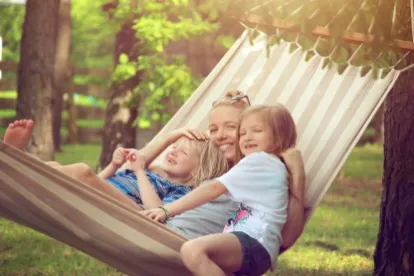The weather is finally warmer and distance learning is finally ending for most students in New Jersey. While New Jersey’s COVID-19 metrics are trending in a positive direction, the national pandemic continues and many parents are thinking about whether or not their children should go to summer camp as planned. In New Jersey, Governor Murphy has signed an order that will allow childcare services to reopen on June 15, organized sports practices to start on June 22, and youth day camps and municipal recreation programs to start on July 6. The Centers for Disease Control (CDC) and the American Camp Association have both put out detailed recommendations, and the State of New Jersey will also be issuing guidelines.
Many people recognize that childcare is a significant issue that must be addressed in order to allow for people to start going back to work. Yet despite the fact that the state has said that children may go to camps and daycare facilities, many parents are very hesitant to actually send their children to them. Although the vast majority of camp activities are outside, children will be children, and social distancing is a significant challenge.
The decision to send a child to daycare or camp this summer is a difficult one for parents, to say the least. However, when parents live apart as a result of a divorce or separation, these choices can be made even more challenging. When a child has two parents who disagree as to whether or not a camp or sports experience should be allowed, there are a number of considerations that have to be taken. What, if any, steps in addition to those recommended by the CDC and American Camp Association is the camp taking to ensure the safety of the children? How many children will be allowed to congregate in groups? What protocols will be put in place if there is a diagnosis of COVID in the camp or program population?
What alternatives are available for the family? Is there a parent who has the ability to stay home and provide childcare? This is but one factor that should be considered. There is no question that the added benefit of socialization at camp may be a much needed change for children, particularly those who may be only children and have had little or no interaction with their peers for almost 3 months. Does the child have any health concerns that would make going to camp a higher risk? Is there any type of illness such as asthma or diabetes that would compromise the child’s health and make going to camp more of a risk?
Generally, in a case where the only reason against sending a child to camp is that one parent simply disagrees with the decision, a court may likely side with the custodial parent. Having said that, communication between the parents is key. The courts have stated that a child’s life does not just stand still while his or her parents engage in protracted litigation and disagreements affecting their interests. Therefore, the court must consider a child’s present circumstances on matters affecting his or her present welfare.
New Jersey courts have long recognized that there are very often two different, but equally reasonable opinions when it comes to parenting children. When faced with a decision that has no right or wrong answer, the balance is oftentimes tipped in the direction of who has the most interaction on a day-to-day basis with the child. However, a parent should not take such a decision to mean that future decisions will be dealt with in the same way when the parents share joint custody.



 />i
/>i
